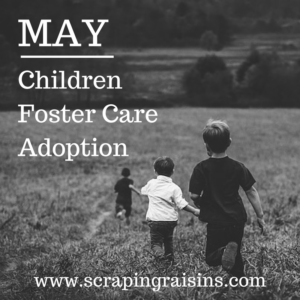
By Afton Rorvik | Twitter: @AftonRorvik
When we moved into our new neighborhood, I did not know what to expect. Would we make friends and find connection?
I grew up on two acres of land in what was then rural Colorado, surrounded by German Shepherds, tomato plants, Russian Olive trees, gophers, and a variety of snakes and mice. Our nearest neighbors—mangy sheep and burly riding horses—didn’t bother us and we didn’t bother them. Of course, the barbed-wire fences helped.
When I moved to a Chicago suburb to attend school, I had no idea I would still be in this suburb decades later. Far away from rural Colorado, I now live next to people, not sheep and horses.
My husband and I and our two kids had only lived in our new house in a Chicago suburb for a few days when several women knocked on our door and invited me to go to a movie with them. I declined, explaining how overwhelmed I felt with the details of moving. My neighbors persisted. A block party. An open house. Coffee at the little shop down the hill.
So very different than living next to sheep and horses.
Nancy lived at the heart of our suburban neighborhood although not exactly at the geographic center. She came early to every neighborhood event and left late. Her mac and cheese had long ago become standard fare at all potlucks. She knew everyone, and everyone knew her. She loved to walk through our streets, usually with her niece’s Jack Russell Terrier in tow. Walking, actually, does not describe what Nancy did. Her meanderings more resembled a halting waltz. She glided slowly, gracefully down the sidewalk until she spotted a neighbor. Then she stopped. Immediately.
The seasons came and went. I started to accumulate phone numbers and began to learn names. I had several conversations with Nancy and other neighbors. Our daughter memorized the names of all the dogs.
Then one winter, in the early hours of dawn, the piercing sound of an ambulance shook our neighborhood. As neighbors woke up that morning, news spread quickly: Nancy, only 49, had had a heart attack. The paramedics had not been able to spare her life.
I did not anticipate my reaction to this news: I sobbed.
I did not know Nancy well, and yet I did. I had come to depend on her mac and cheese, her face-splitting grin, and her probing questions. I loved her stories of talking about Jesus with people in line at the grocery store or Jehovah’s Witnesses who knocked at her door.
And now?
Bev had already planned her annual Christmas open house for the day of Nancy’s funeral. We all discussed canceling it, but then someone voiced our collective thoughts, “No. We need to be together. Nancy would want it that way.”
And so we celebrated Nancy’s life and faith at her funeral. The church oozed with friends and families. We carpooled there and back. We gravitated to Bev’s house where we all listened for Nancy’s heart-felt laugh and distinctive voice. We talked of her mac and cheese as if it had been some rare delicacy. We remembered. We hurt. Together.
I did not know that this happened in neighborhoods.
How thankful I am to live near people—these people—who have taught me the great joy of living connected, living in community.
About Afton:
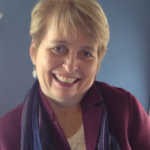 Afton Rorvik savors words, flavored coffee, time outside, and living connected. Although an introvert, she has come to realize that what really matters in life is people and faith in Jesus, which gives her strength and courage to live connected. She is the author of Storm Sisters: Friends for All Seasons. Follow her at her website, www.aftonrorvik.com, Facebook and Twitter.
Afton Rorvik savors words, flavored coffee, time outside, and living connected. Although an introvert, she has come to realize that what really matters in life is people and faith in Jesus, which gives her strength and courage to live connected. She is the author of Storm Sisters: Friends for All Seasons. Follow her at her website, www.aftonrorvik.com, Facebook and Twitter.
***
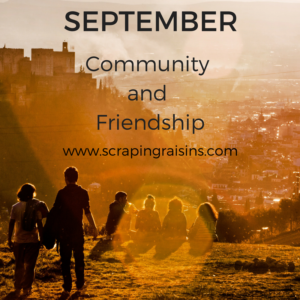 This month on Scraping Raisins we are talking about Friendship and Community. Be sure and subscribe to my newsletter or follow on social media so you don’t miss a post!
This month on Scraping Raisins we are talking about Friendship and Community. Be sure and subscribe to my newsletter or follow on social media so you don’t miss a post!
The theme for October is Practical and Impractical Hospitality, so visit the submissions guidelines if you’re interested in guest posting! New and seasoned writers welcome;-)
Sign up for the (occasional) Mid-month Digest and the (loosely) “end of the month” Secret Newsletter for Scraping Raisins Here:
*This post contains Amazon affiliate links.
Photo by Daria Nepriakhina on Unsplash

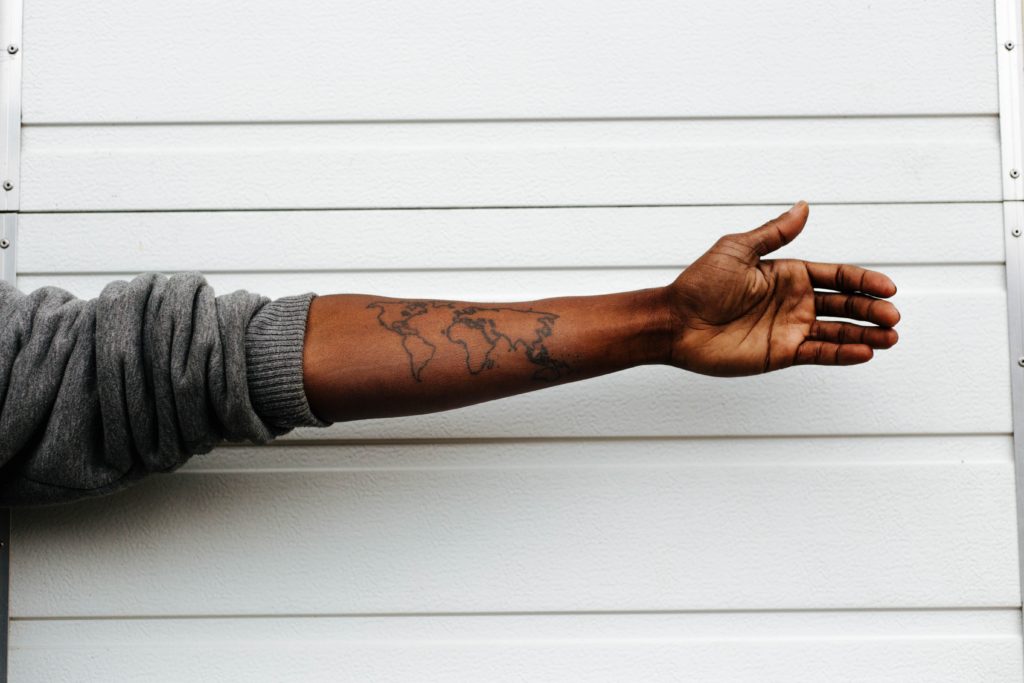
 Tatyana Claytor is primarily a lover of story and truth. As an English teacher, she is surrounded by the stories of the ages, but as a lover of God, she is enveloped in the Story beyond all ages. Her desire is to know the Author of this story as clearly as possible that she might help others see God’s truth in their lives and His plan in their stories. She currently lives in Cocoa, Florida with her three story-loving children and her husband, a minister of Youth and Missions. She has a Master’s degree in Education from Nova Southeastern University and a Master’s degree in Professional Writing from Liberty University. You can find her at her website,
Tatyana Claytor is primarily a lover of story and truth. As an English teacher, she is surrounded by the stories of the ages, but as a lover of God, she is enveloped in the Story beyond all ages. Her desire is to know the Author of this story as clearly as possible that she might help others see God’s truth in their lives and His plan in their stories. She currently lives in Cocoa, Florida with her three story-loving children and her husband, a minister of Youth and Missions. She has a Master’s degree in Education from Nova Southeastern University and a Master’s degree in Professional Writing from Liberty University. You can find her at her website,  The theme for August is “Homelessness, Refugees & the Stranger.” Follow along on social media (links in upper right) to keep up with the latest posts or sign up for the newsletter below for links to the most recent blog posts, thought-provoking articles from the web, and a few of the things I’m into these days.
The theme for August is “Homelessness, Refugees & the Stranger.” Follow along on social media (links in upper right) to keep up with the latest posts or sign up for the newsletter below for links to the most recent blog posts, thought-provoking articles from the web, and a few of the things I’m into these days.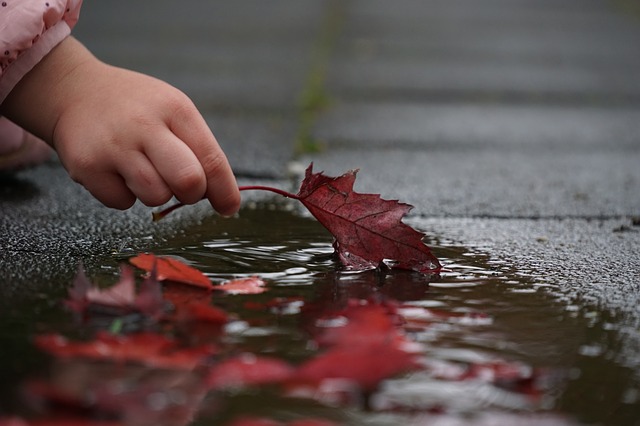
 Sheli Massie is a story keeper, seeker of justice, healing and hope in a broken world. She believes in longer tables, unlocked doors and living a barefoot life. She and her husband live outside of Chicago with their five children and one grandlove. You can find her over on Instagram @shelimassie_, Redbud Writers,
Sheli Massie is a story keeper, seeker of justice, healing and hope in a broken world. She believes in longer tables, unlocked doors and living a barefoot life. She and her husband live outside of Chicago with their five children and one grandlove. You can find her over on Instagram @shelimassie_, Redbud Writers, 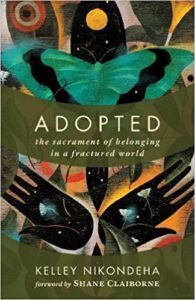 For our last week of posts on foster care, adoption and children, I’m giving away a free copy of Kelley’s book,
For our last week of posts on foster care, adoption and children, I’m giving away a free copy of Kelley’s book, 